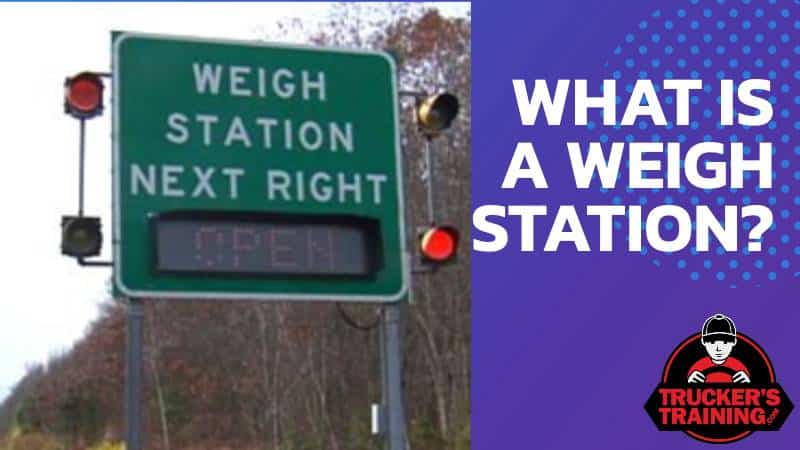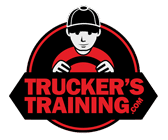Big weigh stations dot highways and interstates across the country. If you’ve ever taken a road trip, chances are you’ve seen one and maybe even stopped at a truck weigh station. They’re those big inspection facilities you pass on highways, usually just for commercial trucks and buses.
Truck weigh stations serve an important purpose. They allow officials to monitor vehicle weights, ensure trucks are following safety regulations, and keep an eye out for any issues before they become big problems down the road. Here’s the scoop on how truck weigh stations work and why they matter.
What Are DOT Weigh Stations For?
DOT weigh stations are checkpoints set up along highways to monitor commercial vehicles like semi-trucks and ensure they comply with safety regulations. Weigh stations inspect trucks to make sure they aren’t overloaded, which can damage roads and make driving unsafe. Some stations also do full vehicle inspections, checking things like tire tread, brake pads, and warning light operation.
Routine weigh station checks help reduce accidents and save lives. Overloaded or poorly maintained trucks are dangerous and can lead to crashes that injure or kill others on the road. Compliance with regulations helps prevent trucking accidents.
If a truck is found to be overweight or in violation of safety standards, the driver and trucking company can face penalties. Repeat or willful offenders may face criminal charges for negligence.
Who Has to Stop at Weigh Stations?
If you drive a commercial truck, chances are you’ll have to stop at weigh stations along your route. These inspection stations monitor vehicle weights to enforce safety laws and prevent overloading.
Commercial business vehicles that are equal to 10,000 pounds in gross weight or more, has to stop. However, regardless of weight, if the inspectors signal for you to stop, you must comply. Failure to do so can result in hefty fines and penalties.
Where Are Weigh Stations Located?
Truck weigh stations are strategically located along major highways and interstates. The weighing station is made up of both a weighing platform and a house for the scale. Inspectors weigh the trucks from the office. Truck weigh stations can also be found near state boundaries. They ensure that trucks and commercial vehicles entering the state are in compliance with the local laws.
Although portable scales may be used, most highway weigh stations have permanent weighting systems. The scales are usually placed in areas with a lot of trucks to make sure that they don’t violate the regulations. In areas with high levels of traffic, these weigh stations also tend to be more common.
What Happens if You Don’t Stop At a Weigh Station?
If you fail to stop at a weigh station, you can be fined. Law enforcement uses weigh stations to ensure truckers are operating safely and legally. Avoiding a weigh station can lead to hefty fines, and legal trouble, and even jeopardize your ability to drive commercially.
If caught avoiding a scale facility, you’ll likely face stiff penalties. Fines can reach $10,000 or more depending on the violation. Repeated offenses can lead to license suspension or revocation.
Some truckers avoid weigh stations to save time or hide violations. But getting caught will cost you much more in the long run. Blowing by a weigh station almost guarantees a thorough DOT inspection, where the inspector can check not only if the vehicle is overweight, but also your log book, CDL license and medical certificate can be inspected. And of course a full safety inspection of your truck can be done. It’s always best to stop as directed. Cooperating with law enforcement helps ensure safe roads for all.
As a professional CDL driver, your top priorities should be safety, following the rules of the road, and maintaining your truck and credentials properly. Stopping at mandated weight stations is just part of the job.
Can I Bypass a Weigh Station?
Can you bypass a weigh station? Technically, no. Weigh stations are mandatory stops for commercial trucks to check that vehicles meet safety standards and are within legal weight limits. However, pre-screening uses devices like weigh-in-motion scales and transponders to determine if a truck needs to stop for inspection or can continue driving without stopping. If the system gives a green light, you can safely pass the weigh station
Conclusion
As annoying as they might seem with the long lines and inspections, these weigh stations play an important role in keeping everyone on the road safe. Next time you pass one of those weigh stations on the highway and see the trucks lined up, you’ll know exactly what’s going on inside and why it matters.
TruckersTraining.com provide information, tools and resources to potential truck drivers in the U.S. We hope that you can use the content on the site to help you decide if want to drive trucks for a living.

